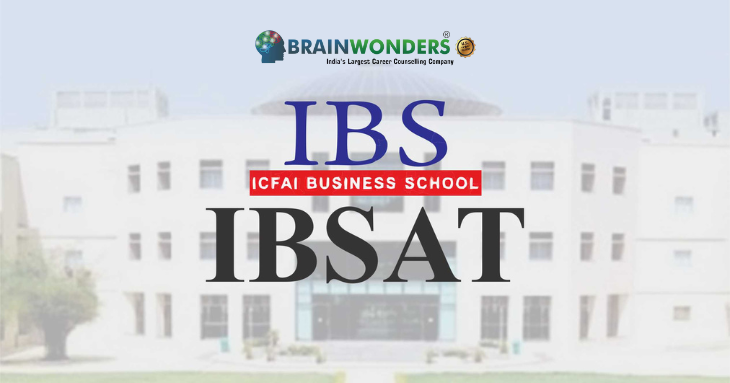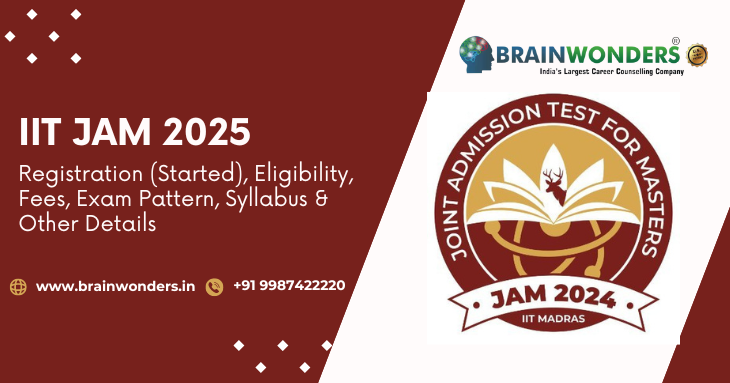

Take Brainwonders Career Test and make the right decisions for your college and course ahead
Get your U.S. Patented DMIT analysis and lead the way to a happy and successful career
Blog
21 June,2024 | By Brainwonders
_(1).webp)
The MBA, or Master of Business Administration, is a postgraduate degree in management and business administration. It is open to students from any academic background. In India, over 4,500 private, government, and deemed universities offer MBA programs in various specializations such as Finance, Human Resources, Digital Marketing, and Retail Management.
In 2023, IIM Calcutta reported an average package of Rs. 35.07 LPA. The median salary at the Indian Institute of Management Kozhikode was Rs. 27 LPA, with female students earning an average of Rs. 31.93 LPA. Students who have completed a 10+2+3 education are eligible for the MBA program. Major entrance exams for MBA programs include CAT, MAT, and XAT.
The MBA, or Master of Business Administration, is a two-year postgraduate degree program. It offers various specializations, including Accounting, Financial Management, Cost and Management Accounting, Human Resource Management, Marketing, and Strategic Management.
| Particulars | Details |
| Name of the Course | MBA |
| MBA Full Form | Master of Business Administration |
| Course Level | Postgraduate |
| MBA Course Duration | Two years |
| MBA Eligibility Criteria | Candidates must pass a bachelor's degree in any specialisation from a recognised university with a minimum aggregate of 50 per cent (In the case of IIMs, it is 60 per cent). |
| Entrance Examinations | CAT, MAT, XAT, ATMA, CMAT, GMAT, NMAT |
| Top Colleges | IIMs, MDI Gurgaon, FMS Delhi, SPJIMR Mumbai, XLRI |
| Similar Specialisations | MBA in Finance, MBA in Sales, MBA in Human Resources, MBA in Marketing, MBA in Business Analytics, MBA in Digital Marketing |
| Average MBA fees | Government colleges: Rs 50,000 to Rs 4 lakh Private colleges: Rs 20 lakh to Rs. 25 lakh |
| Careers | Manager, Sales Manager, Marketing Manager, HR Manager |
| Average MBA Salary | Rs. 15,00,000 LPA |
| Top Recruiters | Google, Deloitte, NTPC, Citibank, ITC, Vodafone, Larsen & Toubro, Microsoft Amazon, Wipro, PwC |
Many colleges offer the MBA program, a popular master's degree in business, management, and commerce. This program helps students develop managerial skills and establish strong social and professional networks, which can lead to employment opportunities in various fields. MBA programs provide comprehensive and structured instruction focused on business objectives.
In India, the MBA offers a variety of specializations suitable for both undergraduates and working professionals. Graduates from top business schools such as IIM Ahmedabad, IIM Bangalore, MDI Gurgaon, and FMS Delhi earn an average of around Rs. 20 lakhs annually.
MBA graduates are in high demand in corporate and business organizations. Earning an MBA in India opens the door to numerous job opportunities. Some benefits include high remuneration, diverse job prospects, exposure to multiple industries, and career advancement.
The MBA degree program is highly sought-after by students aiming for a management education at the postgraduate level. MBA programs are offered in various formats, including distance learning and online modes, providing flexibility for students to complete their studies according to their convenience. Some types of MBA courses include:
The MBA degree offers a range of specializations that cover general business administration as well as specific topics. The most popular MBA specializations are Finance, HR, Marketing Management, and Banking and Finance Management. In recent years, colleges have introduced new specializations such as MBA in FinTech, Artificial Intelligence, Data Analytics, and Aviation Management.
| MBA in Marketing Management | MBA Data Science |
| MBA Artificial Intelligence | MBA in Entrepreneurship |
| MBA Hospital and Health Care Management | MBA in Rural Management |
| MBA in International Business | MBA Textile Management |
| MBA in Digital Marketing | MBA in Sustainability Management |
| MBA FinTech | MBA in Pharmaceutical Management |
| MBA in Communication and Media Management | MBA in Logistics Supply Chain Management |
| MBA in Banking & Finance Management | MBA in Data Analytics |
| MBA Port and Shipping Management | MBA Retail Management |
| MBA Banking and Insurance | MBA Capital Market |
Different types of MBA degrees have varying eligibility criteria for application. Graduates with degrees such as B.Tech, BBA, BCA, B.Com, BA, and BSc can pursue an MBA course. This degree is highly significant for many managerial-level positions across diverse industries and sectors.
Students from diverse streams, including Science, Humanities, and Commerce, are eligible to pursue an MBA course. Below, we outline the eligibility criteria for MBA admission:
The MBA course typically spans two years, divided into four semesters. The first year focuses on the general management curriculum, while the second year delves into specialized knowledge within chosen specializations. However, the duration of an MBA program can vary depending on its type; for instance, an Executive MBA typically lasts for one year, while a regular MBA program extends over two years.
Candidates pursuing an MBA are usually expected to move into business management positions after graduation. To succeed in these roles, one needs strong leadership capabilities. Obtaining an MBA means having a bachelor's degree and building skills in management, analysis, and making decisions.
To secure admission to top MBA colleges in India, applicants must pass entrance exams like the Common Admission Test (CAT), Xavier Aptitude Test (XAT), Management Aptitude Test (MAT), and NMAT. This section highlights some of the MBA entrance examinations.
| Exam Name | Level | Conducting Body | Exam Schedule |
| CAT | National | IIM Lucknow | CAT Exam Schedule |
| MAT | National | All India Management Association | MAT Exam Schedule |
| XAT | National | XLRI Jamshedpur | XAT Exam Schedule |
| CMAT | National | National Testing Agency | CMAT Exam Schedule |
| NMAT | National | Graduate Management Admission Council | NMAT Exam Schedule |
Students must sit for the CAT or MAT entrance examination to enrol in an MBA degree program. The cutoff scores of these entrance exams determine admission to colleges in India. Refer to the table below for the key dates of CAT 2024 and MAT 2024.
| Entrance Exam | Application Date | Admit Card | Exam Date | Result Date |
| CAT | Expected to open on August 1, 2025, and close on September 13, 2025.(Tentative) | Anticipated around October 16, 2025.(Tentative) |
Likely to be held on November 30, 2025. (Tentative) |
Expected in the second week of January 2026.(Tentative) |
Several colleges in India administer MBA entrance exams for students. Top management colleges in India accept a variety of entrance exams based on eligibility standards and entrance requirements for MBA degrees.
| Institutions | MBA Exam |
| IIM Ahmedabad | CAT |
| XLRI Jamshedpur | XAT |
| Symbiosis University | SNAP |
| NMIMS Mumbai | NMAT |
| Indian Institute of Foreign Trade | IIFT |
| IIM Bangalore | CAT |
| UPES Dehradun | CAT |
| IBS Hyderabad | CAT |
| FMS Delhi | CAT |
| Woxsen School of Business | XAT |
Admission to MBA programs in both top private and government colleges in India relies on the level of examination conducted by relevant state or national organizations. The MBA admission process is entirely based on MBA entrance exams.
Prospective students must pass the MBA entrance exams for their preferred management college to enrol in a Master of Business Administration program in India. They must also successfully navigate the entrance exams and interview procedures as part of the selection process.
For MBA admission, there are various entrance exams conducted at the national, state, and university levels:
The MBA fee structure varies across colleges in India and is influenced by factors like available resources and university amenities. In addition to covering tuition fees, MBA fees may include access to college facilities.
Top MBA colleges like IIMs, SPJIMR, and MDI Gurgaon typically charge an average of Rs. 20 lakhs to Rs. 25 lakhs for the entire course. On the other hand, government colleges generally charge lower fees, averaging Rs. 50,000 to Rs. four lakhs per annum.
A university scholarship is a financial award designed to assist deserving students with the cost of their education at that particular institution. We won't cover non-university MBA scholarships here since they aren't available to everyone.
For more details on those, visit the "Funding" section of the MBA program's website. Scholarship amounts can vary widely, ranging from $5,000 to covering the entire cost of tuition. These amounts often indicate how much the admissions committee wants you to enroll in their program rather than choosing a different school. There are several types of MBA scholarships available, including:
1. Need-based Scholarships: These are for students who require financial support to pursue their studies.
2. Merit-Based Scholarships: Awarded to students who have demonstrated exceptional academic performance or achieved notable accomplishments.
3. Diversity and Gender-based Scholarships: Designed to support students from various backgrounds or specific genders to promote inclusivity.
4. External Scholarships: These come from organizations or sources outside the university itself.
Upon completing their MBA in India, students can embark on full-time professional careers, start their own startups, or pursue further studies. Many companies seek MBA graduates with the requisite skills and experience for employment opportunities.
Option 1: After getting your degree, you can start working full-time in a company and earn around Rs. 12 lakhs per year.
Option 2 : Another path is to continue your studies and pursue a PhD in management or a related field. MBA Job Opportunities. Many people choose to earn an MBA to secure jobs after graduating. This degree opens doors in areas like Human Resources, Finance, and Operations. Manager. You’ll lead and supervise a team, department, or organization to ensure everything runs efficiently.
Sales Manager: You’ll manage the sales process, reach targets, and increase profits.
Marketing Manager: Your role will involve planning marketing campaigns, driving sales, and promoting products.
HR Manager: You’ll look after hiring, employee relations, and resolving workplace issues.
Salary After MBA Your salary after an MBA depends on your specialization. In India, graduates typically earn between Rs. 4,00,000 and Rs. 32,00,000 annually. Your job type will be influenced by your MBA focus. Specializing in Marketing often leads to higher job selection rates among management students. Many factors, such as specialization, experience, college reputation, and job position, play a role in determining MBA salaries. Check the table below for detailed MBA graduate salaries in India.
| Job Profiles | Average Salary |
| Manager | Rs. 11.6 LPA |
| Sales Manager | Rs. 5.0 LPA |
| Marketing Manager | Rs. 7.0 LPA |
| HR Manager | Rs. 6.6 LPA |
Q1. What is an MBA course?
Ans: An MBA is a postgraduate degree providing both practical and theoretical knowledge in business, finance, and investment management. The Master of Business Administration is a two-year professional degree program. MBA degrees are available in various formats, including online, part-time, distance, integrated, and executive MBA.
Q2. What is the duration of an MBA course?
Ans: A full-time MBA degree programme's total duration is two years, equally segregated into four semesters.
Q3. What is the eligibility for an MBA?
Ans: Candidates must hold a bachelor's degree in any discipline to be eligible for an MBA postgraduate program.
Q4. What is the admission process for an MBA degree programme?
Ans: Admission to MBA degree programs in 2024, whether in private or government colleges, is based on national, state, or university-level entrance examinations.
Q5. What are some of the top MBA entrance examinations?
Ans: Some of the top MBA entrance examinations include CAT, XAT, SNAP, CMAT, and IIFT
Q6. What is the difference between an MBA and a PGDM?
Ans: The fundamental distinction between an MBA and a PGDM is that an MBA is a degree, while a PGDM is a diploma program. Stand-alone institutions or autonomous bodies offer PGDM programs, whereas MBAs are provided by universities or colleges affiliated with top management universities.
Take Brainwonders Career Test and make the right decisions for your college and course ahead



,_Syllabus,_Pattern,_Old_Question_Papers.png)

